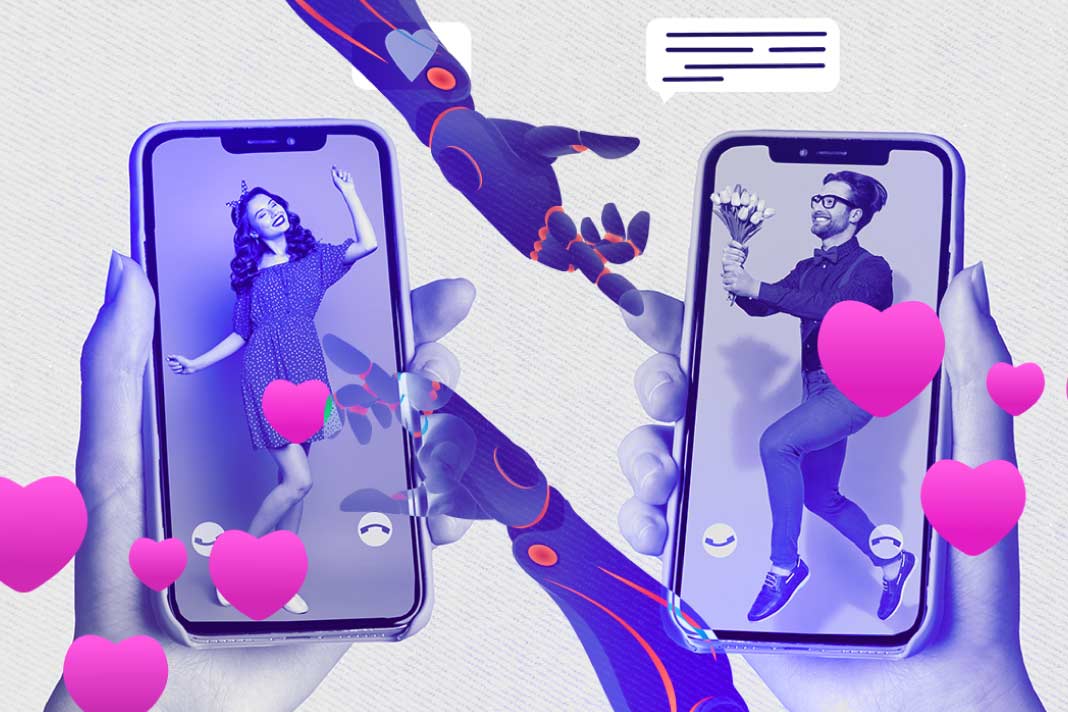Dating apps are popular, but fatigue is rising. A new survey explores why users, especially women, are skeptical that AI features like chatbots and wingmen will improve their search for real connections.
According to Pew Research, Dating apps have become one of the primary ways people meet romantic partners, with approximately 10% of Americans in committed relationships (including marriages) having met through an online dating app or site. Despite this popularity, many individuals report feeling dating app fatigue—a sense that the apps aren’t really providing these users with what they’re looking for, whether a long-term relationship or a one-night hookup and instead encourage endless swiping. This fatigue is hurting the apps in terms of user perceptions and affecting their profitability, with companies like Bumble seeing their shares drop over a lack of new users.
Faced with this conundrum—that some people find love on dating apps, but many are skeptical and tired of them—numerous dating app companies, including online dating behemoth Match Group, are trying to innovate. And, of course, the primary source of innovation in this space is the incorporation of generative artificial intelligence. AI might take the form of a wingman, which Grindr is currently touting, a helpful friend who can assist an online dater by tweaking messages and identifying potentially interesting profiles. Match is even hoping that AI can help their users plan dates. And behind all of this, AI is integral to the algorithms that help with matching in the first place.
However, online daters remain skeptical about incorporating AI into dating apps, especially women, according to a survey I conducted with Ipsos in February of this year. We sampled 1,000 individuals who were representative of the US population. Across the sample, these respondents—both those who had used dating apps and those who hadn’t—still aren’t sure that AI will improve dating apps. This is especially true when asking them to consider chatbots; nearly 50% of respondents said that there were too many chatbots on dating apps for the apps to be trustworthy.
That’s not to say the report is dire for dating apps, as plenty of respondents did think that a dating app could help an online dater find a soulmate. But there is a push-and-pull: A push toward real connection and real people, a pull away from further technologizing an experience (dating, romance) that we associate with human emotions and experiences.
Also Read: Can AI Enhance Conversations Without Sacrificing Privacy?
Putting oneself on a dating app—or into any dating experience—creates vulnerability. Creating a profile means that a dater puts themselves in a world for others to consume, judge, and assess attractiveness and compatibility. This typically happens without the dater there to defend themselves or explain what elements of their profile mean. After that initial consumption of the profile, a dater must have an impactful opening line that catches the other person’s attention and gets them to keep conversing. And once that is all done, daters have to coordinate to determine if, how, and when they will meet in person (or on FaceTime, Zoom, etc.). At each stage of this experience, a dater exposes themselves a little more.
Being vulnerable on a dating app requires trust in the platforms’ technology. Does a Tinder user believe that Tinder is using their information to maximize their matches and dating potential? For many, the answer is no, which is why we often see dating app fatigue. It isn’t just that people are tired of swiping but of putting themselves out there with little reward. How much information can you hand over without getting anything back?
This also likely explains a lot of the hesitation around AI: If potential matches aren’t appreciating the work you’re putting into your profile, what will AI think? There are also concerns that an online dater who has put a lot of work into their profile and messages will end up messaging with someone’s chatbot, which creates an inequality in the relationship before it starts. One person is thinking, writing, and trying to be authentic; the other isn’t even there.
Concerns about authenticity are not new in online dating by any means and coincide with another key finding in the survey: 61% of respondents think that most people lie on dating apps. Lying has always been a primary concern in dating (not even online!): How do you know someone has the job they claim? How do you verify their age? Their relationship status? The rise of Are We Dating the Same Guy Facebook groups points to one-way individuals (in this case, women) trying to determine if someone is lying.
Also Read: The AI Crossroads: Power, Policy, and the Global Race
For many, AI offers another way to lie or otherwise avoid genuine interaction. AI goes directly against what many online daters seek: Real connections, whether for a night or a lifetime. It can be hard to conceptualize AI in this space as anything other than a shortcut. It also raises safety concerns, another reason why trust is integral to this line of inquiry. A Tinder user needs to have some confidence in Tinder itself, but that user also needs to trust that the person they’re chatting with is real and will be who they say they are—especially if and when they meet in person.
AI is being built into numerous apps, and in many ways and situations, it provides a practical update and solution for many users. But when it comes to dating, the data suggest a step back: There is still value in, and even a need for, a human touch, whether creating your dating profile, writing your messages or planning your dates. For online daters, they just aren’t quite ready for an all-AI experience in the search for love.



